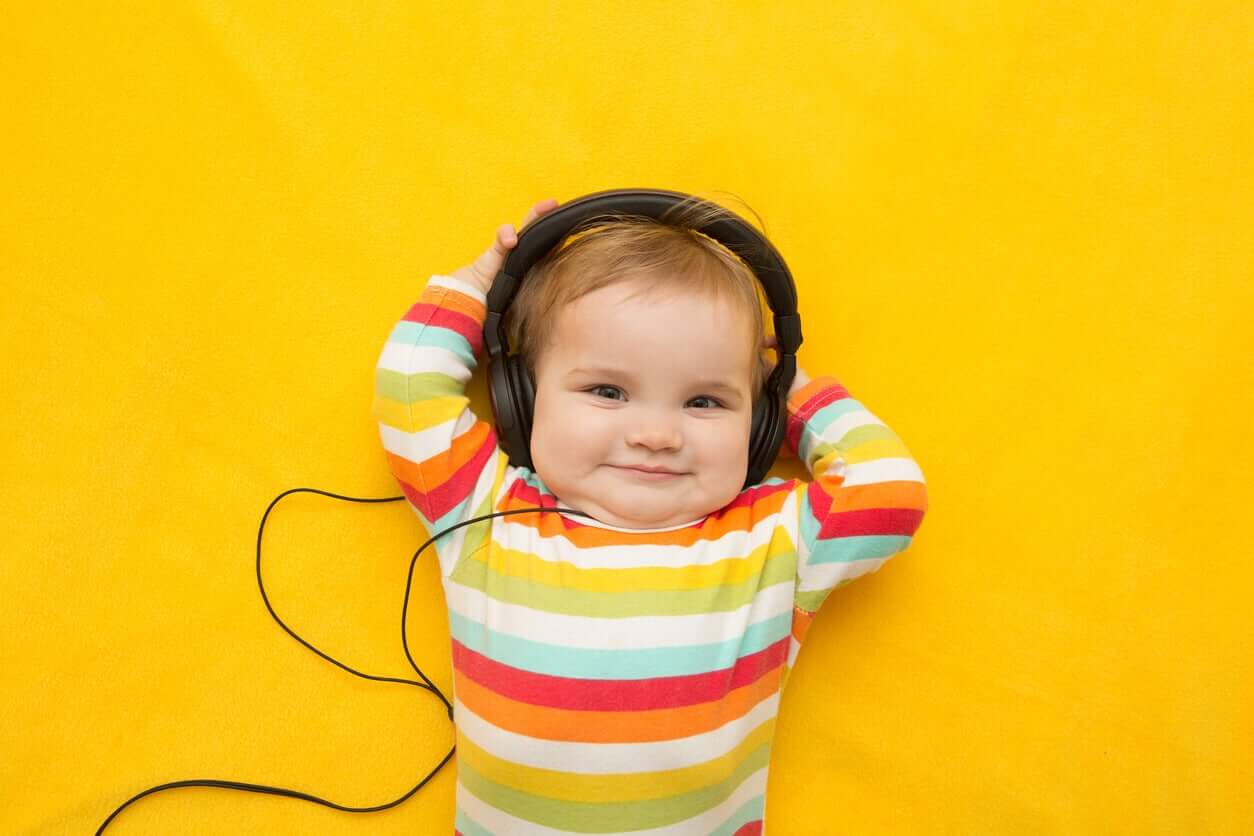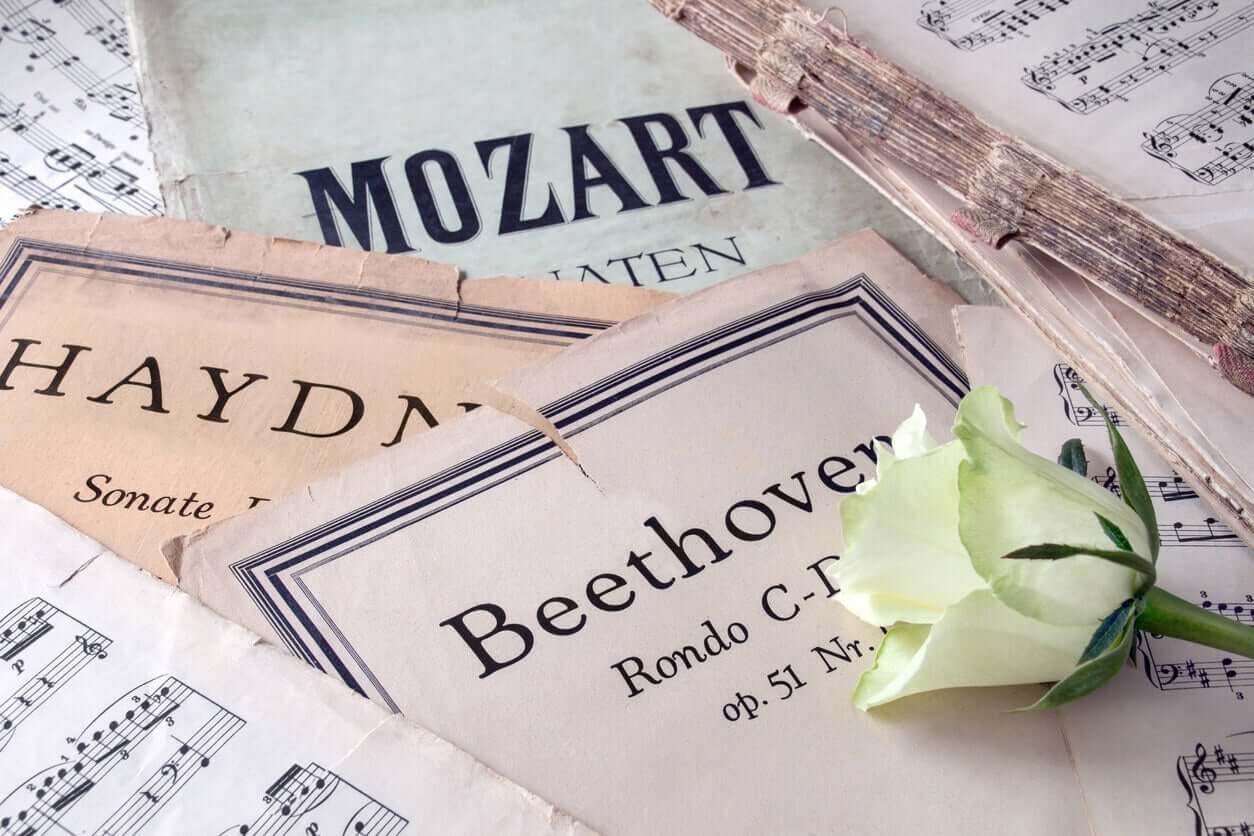The Benefits of Classical Music for Children

Exposing children to art favors their integral development and, therefore, music is one of the most versatile disciplines to achieve this. While there are many styles and rhythms, today we’re going to focus on the benefits of classical music for children.
Why classical music for children?
The classical style offers multiple advantages for children, thanks to the tempo and periodicity of its compositions.
Regarding the tempo or speed, expressed in BPM or beat per minute, classical music has a tempo that ranges between 60 and 80 BPM. This is significantly less than 80 to 100 beats per minute of the heart, which is why we feel comfortable with it.
In addition, the repetitions of sound waves in a certain space of time (or periodicity) are optimal for children to acquire better spatial and temporal reasoning.
According to some scientific studies, this can be achieved with certain works by Mozart and Bach, because they have a high level of long-term periodicity (10 to 60 seconds). In fact, numerous investigations have proven that these characteristics of the classic genre have positive effects on the health, emotions, and minds of children.

6 reasons why classical music is good for kids
Making classical music a good company from pregnancy is a great idea, as it relaxes the mother. And this feeling of well-being reaches the child as well. If mothers continue this practice after birth, the benefits multiply. We share them below.
1. Calms anxiety and produces a sense of well-being
Listening to classical music lowers blood pressure, calms anxiety, and produces relaxation in children. Likewise, the relaxed atmosphere that it creates improves communication and socialization skills among cohabitants.
2. Reduces stress
Today’s children’s days are full of activities, and this can lead to a certain level of stress. Therefore, listening to classical music helps them to reduce cortisol levels and to experience a beautiful sensation of well-being.
3. Helps children fall asleep
The rhythmic patterns of certain works of classical music, together with the state of relaxation, contribute to good rest. In addition, these melodies help children to fall asleep much faster and more calmly.
4. Improves learning skills
While listening to classical music doesn’t directly improve the ability to learn, the relaxed environment predisposes the brain to create more neural connections, improve concentration, and enhance memory.
In addition, little ones who study music and learn to play instruments cultivate perseverance and discipline, factors that also favor them in their school activity.
The aspects most influenced by classical music are logical reasoning, number operations, speech processing, and language learning.
5. Activates emotions
Children who listen to classical music develop a greater sensitivity. This allows them to quickly detect their different moods and better manage their social relationships.
6. Boosts creativity
Like all artistic disciplines, classical music promotes the activity of the right brain hemisphere and enhances creative ideas and imagination.
How to choose the right classical music for your child?
“What kind of music should unborn babies listen to? Classical music and gentle sounds that resemble lullabies.”
-Dr. Ibrahim Baltagi-
Of course, the choice of classical music for children is a challenge, as there are countless works. Nowadays, you have the advantage of being able to look for a playlist on the internet and using it with your children.
For babies, some of the best works thanks to their calm and gentle rhythm are the following:
- Adagio in G minor, by Tomasso Albinoni
- Lullaby, by Johannes Brahms
- For Elisa and Claro de luna, by Ludwig van Beethoven
- Sonata for two pianos K 448 and Piano Concerto No. 23, by Mozart
On the other hand, if you’re looking for something with a more cheerful rhythm for children to play, do crafts, or draw with a musical background, try these options:
- La Primavera, by Vivaldi
- Hungarian Dances, by Johannes Brahms
- Sonata No. 12 in F major, by Mozart
- Brandenburg Concerto, by Johann Sebastian Bach

The effects of music on the body and mind: A mystery under study
While there’s a lot of research on the benefits of music, science is still digging into this topic.
From the 1993 Mozart Effect study to the Sound Health initiative of the United States National Institutes of Health, the goal is to unravel the mystery in the relationships between music and the human mind.
In the meantime, find a playlist and reap the benefits of classical music for children–some proven, some inexplicable, but all equally effective!
Exposing children to art favors their integral development and, therefore, music is one of the most versatile disciplines to achieve this. While there are many styles and rhythms, today we’re going to focus on the benefits of classical music for children.
Why classical music for children?
The classical style offers multiple advantages for children, thanks to the tempo and periodicity of its compositions.
Regarding the tempo or speed, expressed in BPM or beat per minute, classical music has a tempo that ranges between 60 and 80 BPM. This is significantly less than 80 to 100 beats per minute of the heart, which is why we feel comfortable with it.
In addition, the repetitions of sound waves in a certain space of time (or periodicity) are optimal for children to acquire better spatial and temporal reasoning.
According to some scientific studies, this can be achieved with certain works by Mozart and Bach, because they have a high level of long-term periodicity (10 to 60 seconds). In fact, numerous investigations have proven that these characteristics of the classic genre have positive effects on the health, emotions, and minds of children.

6 reasons why classical music is good for kids
Making classical music a good company from pregnancy is a great idea, as it relaxes the mother. And this feeling of well-being reaches the child as well. If mothers continue this practice after birth, the benefits multiply. We share them below.
1. Calms anxiety and produces a sense of well-being
Listening to classical music lowers blood pressure, calms anxiety, and produces relaxation in children. Likewise, the relaxed atmosphere that it creates improves communication and socialization skills among cohabitants.
2. Reduces stress
Today’s children’s days are full of activities, and this can lead to a certain level of stress. Therefore, listening to classical music helps them to reduce cortisol levels and to experience a beautiful sensation of well-being.
3. Helps children fall asleep
The rhythmic patterns of certain works of classical music, together with the state of relaxation, contribute to good rest. In addition, these melodies help children to fall asleep much faster and more calmly.
4. Improves learning skills
While listening to classical music doesn’t directly improve the ability to learn, the relaxed environment predisposes the brain to create more neural connections, improve concentration, and enhance memory.
In addition, little ones who study music and learn to play instruments cultivate perseverance and discipline, factors that also favor them in their school activity.
The aspects most influenced by classical music are logical reasoning, number operations, speech processing, and language learning.
5. Activates emotions
Children who listen to classical music develop a greater sensitivity. This allows them to quickly detect their different moods and better manage their social relationships.
6. Boosts creativity
Like all artistic disciplines, classical music promotes the activity of the right brain hemisphere and enhances creative ideas and imagination.
How to choose the right classical music for your child?
“What kind of music should unborn babies listen to? Classical music and gentle sounds that resemble lullabies.”
-Dr. Ibrahim Baltagi-
Of course, the choice of classical music for children is a challenge, as there are countless works. Nowadays, you have the advantage of being able to look for a playlist on the internet and using it with your children.
For babies, some of the best works thanks to their calm and gentle rhythm are the following:
- Adagio in G minor, by Tomasso Albinoni
- Lullaby, by Johannes Brahms
- For Elisa and Claro de luna, by Ludwig van Beethoven
- Sonata for two pianos K 448 and Piano Concerto No. 23, by Mozart
On the other hand, if you’re looking for something with a more cheerful rhythm for children to play, do crafts, or draw with a musical background, try these options:
- La Primavera, by Vivaldi
- Hungarian Dances, by Johannes Brahms
- Sonata No. 12 in F major, by Mozart
- Brandenburg Concerto, by Johann Sebastian Bach

The effects of music on the body and mind: A mystery under study
While there’s a lot of research on the benefits of music, science is still digging into this topic.
From the 1993 Mozart Effect study to the Sound Health initiative of the United States National Institutes of Health, the goal is to unravel the mystery in the relationships between music and the human mind.
In the meantime, find a playlist and reap the benefits of classical music for children–some proven, some inexplicable, but all equally effective!
All cited sources were thoroughly reviewed by our team to ensure their quality, reliability, currency, and validity. The bibliography of this article was considered reliable and of academic or scientific accuracy.
- Donzel,B. (2018) Mitos y realidades del efecto Mozart. Revista Pediatría Atención Primaria vol.20 no.79 Madrid jul./sep. 2018. Disponible en: https://scielo.isciii.es/scielo.php?script=sci_arttext&pid=S1139-76322018000300013
- Jenkins., S. (2001) El efecto Mozart. Journalist of the Royal Society of Medicine. Disponible en: https://www.ncbi.nlm.nih.gov/pmc/articles/PMC1281386/
- Mayo Clinic (s.f.) Control del Estrés. Disponible en: https://www.mayoclinic.org/es-es/healthy-lifestyle/stress-management/in-depth/stress/art-20046037
- Medline Pus (2018). Estudios de los NIH exploran la intersección del arte, la música y la salud. NIH. Disponible en: https://magazine.medlineplus.gov/es/art%C3%ADculo/iniciativa-del-nih-kennedy-center-explora-la-musica-y-la-mente/
- Novotney. Amy (2013) Music is medicine. American Psycologhical Asociation. Disponible en: https://www.apa.org/monitor/2013/11/music
- Thoma, M., La Marca, R., Brönnimann,R., Finkel, L., Ehlert, U., Nater, U. (2013). The Effect of Music on the Human Stress Response. US National Library of Medicine. Disponible en: https://www.ncbi.nlm.nih.gov/pmc/articles/PMC3734071/
- UNICEF (s.f.) How music affects your baby’s brain: Mini Parenting Master Class. [Internet] Disponible en: https://www.unicef.org/parenting/child-development/how-music-affects-your-babys-brain-class
- Yarkony, L. (2021) Si suena bien, es bueno: los beneficios de la música para los niños. Council of Professional Recognition. Disponible en: https://www.cdacouncil.org/es/if-it-sounds-good-it-is-good-the-benefits-of-music-for-children/
- Zhao, T. C. & Kuhl, P. K. (2016) Musical intervention enhances infants’ neural processing of temporal structure in music and speech. Disponible en: https://www.pnas.org/content/113/19/5212
This text is provided for informational purposes only and does not replace consultation with a professional. If in doubt, consult your specialist.








